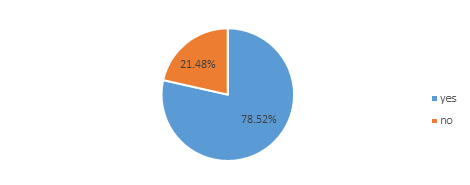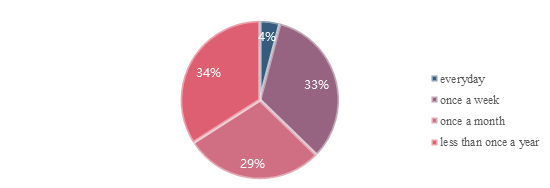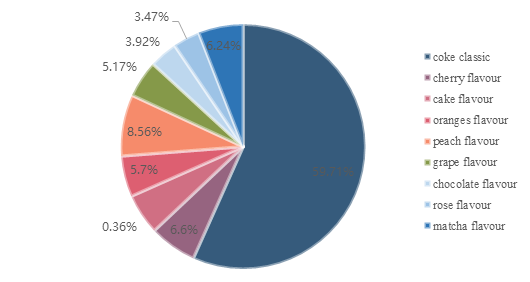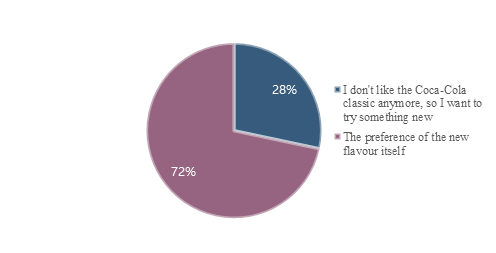1. Introduction
The status quo bias was first introduced by William Samuelson and Richard Zeckhauser to define it as “In choosing among alternatives individuals display a bias toward sticking with the status quo” in 1988 [1]. Status quo bias breaks the public’s traditional rational hypothesis and could be widely found in many fields in real life. So it is common to see firms exploit the consumers’ status quo bias to increase the consumption or earn more profits such as in soft selling. While since there are still a number of people do not realize the importance of status quo bias, which results in some wrong business choices. There would be some suggestions about how to enhance the occasions and avoid commercial failure in this article. An online experiment to validate if the same result about Coca-Cola’s commercial fail again is also included in this article.
Since the case of the reformation of Coca-Cola became a commercial failure in 1985 which prove the importance of status quo bias in people’ decision making. And there were several explanations about the factors which will influence status quo bias. While it is unclear than if people’s choice will change nowadays between new coke and origin coke as consumers’ brand loyalty may changed. And each the effectiveness of each factor of status quo bias in decision making for coke haven’s be tested. So the new research can verify the effectiveness of status quo bias in people’s real life.
The article will firstly introduced the previous research about for an experiment about people’ preferences for soft drinks in both blind taste test and labeled taste test. It showed people’s attitude towards the reformation of the new coke and the reintroduction. Later, an online experiment about the preference between new coke and coke origin in terms of a questionnaire. And based on the unexpected data received a more detailed questionnaire to participants to retest the effectiveness of status quo bias in decision making. The conclusion about how important for companies to value the importance of status quo bias.
2. Literature Review
Status quo bias can be defined as the phenomenon that people prefer his/her original environment and situation. And it will be most effective in decision making: when people make decisions, they tend to choose the options which were more familiar instead of the choices with more potential benefits [2].
In 1988, William Samuelson and Richard Zeckhauser offered explanations of the factors may influence decision making about status quo bias (1) transition cost/ uncertainty (2) cognitive misperceptions (3) psychological commitments stemming (sunk costs, regret avoidance and drive for consistency) [1].
2.1. Transition Cost
It may make any cost of switching higher compared to the status quo itself [2]. For example, it could be the time cost for people when they have to do the comparison between two options.
2.2. Uncertainty
The alternatives are unknown for people before the fact which may reduce they chose the new option [1].
higher than bias occurs in many forms. For example, As status quo bais is effective in listed three fields — marketing, policy making and job mobility.
2.3. Loss Aversion
When people have to make choice, they weigh the potential for loss more heavily than the potential of gain [3]. Also, the endowment effects may occur here as owning an item will result in a higher valuation than not owning it to trade or depart from [4]. So consumers usually valued the goods they owned or they used owned more than that of the bringing from new options.
2.4. Regret Avoidance
Individuals will gain stronger felling of regret about the bad results for the consequences if new actions instead of keeping status quo or inaction [3].
Based on the case Coca-Cola’s failure of reformulation in 1985 even the result from blind taste test was positive. Specifically, there were about 55% of coca drinkers thought the taste of new flavor of cola was better than that of original one. In addition, 61% of participants still chose new coke under the condition drinks were already identified as “new Coke” and “old Coke”. However, many coke drinkers not satisfied with the reformulation and the company even received tons of angry letters and phone calls. In 1986, the sales of classic coke reached almost seven times higher than that of new coke.
2.5. Coca-Cola’s Case
Finally, in 1990 new coke’s share declined to only 6% [5]. Previous research has established the reasons why consumers did not chose new coke. From the research by Debra Jones Ringold in 1988, a new experiment was done [6]. Through test participants satisfaction about two types of coke and attitude towards about reintroduction the original coke. Consumers purchasing behavior could be explained by the Brehm’s theory - to eliminate a choice will tend to make that choice be more attractive to people who are going to make a choice [7].
So far, there could be a difference between consumers’ choice or attitude towards the reformulation of new coke. So a new research was done to verify the effectiveness of status quo bias nowadays. It also tend to verify how transition cost, uncertainty, loss aversion and regret avoidance influence people’s decision making.
3. Methodology
3.1. Blind Taste Test and Labeled Taste Test
The experiment used blind taste test and labeled taste test for six times during eight months period since June 1985. Only one test was done before the reintroduction. The participants were junior and senior students who majored in business. The average sample size of blind taste test was 25 (range 17 to 36) and of labeled taste test was 23 (range 19 to 34). Also, the research examined additional group of students about how often they drunk soft drinks, their purchasing habits for soft soft drinks and knowledge for the products in the category. Participants were given plastics cups of original coke, new coke which was numbered and a cup of water. Also, they needed to access the taste of two flavors cola on a scale from 0 to 100 [6].
The results was that from the questionnaire, every participants showed they knew Coca-Cola’s reformulation and its reintroduction of coke classic. Most of the advice was it was important to reintroduce the original taste of cola in order to offer consumer maximum choices and can benefit the company from students [6].
The listed table showed the details about the results from six tests [6].
Table 1: Summary of soft drink purchasing behavior over the time.
6/25/85a n= 40 | 7/26/85 n= 24 | 9/9/85 n= 50 | 10/9/85 n= 30 | 12/13/85 n= 35 | 2/3/86 n= 48 | |
Soft drink importance (Rank among 8 beverages) | 2 | 2 | 1 | 1 | 1 | 1 |
Proportion who purchase soft drinks one or more times per week | 0.55 | 0.54 | 0.70 | 0.57 | 0.66 | 0.54 |
Proportion who purchase one six -pack at a time | 0.75 | 0.75 | 0.74 | 0.73 | 0.63 | 0.56 |
Proportion who purchase two or more six-packs at a time | 0.20 | 0.13 | 0.24 | 0.17 | 0.29 | 0.35 |
Soda expenditure as proportion of grocery budget | 0.10 | 0.11 | 0.14 | 0.14 | 0.09 | 0.15 |
Table 2: Mean soft drink preferences in blind taste test.
6/25/85a n= 17 | 7/26/85 n= 26 | 9/9/85 n= 24 | 10/9/85 n= 20 | 12/13/85 n= 36 | 2/3/86 n= 25 | |
New Coke | 67.6 | 53.7 | 56.2 | 71.3 | 70.3 | 59.5 |
Original Coke | 67.5 | 58.2 | 52.6 | 54.9 | 62.2 | 31,3 |
t | 0.03 | -0.90 | 0.74 | 2.84 | 1.91 | 4.65 |
p-value | 0.489 | 0.188 | 0.235 | 0.005 | 0.033 | 0.000 |
Note: From [6].
Table 3: Mean soft drink preferences in labeled taste-tests.
6/25/85 n= 19 | 7/26/85 n= 18 | 9/9/85 n= 20 | 10/9/85 n= 20 | 12/13/85 n= 34 | 2/3/86 n= 24 | |
New Coke | 63.4 | 61.9 | 61.6 | 54.9 | 59.5 | 60.7 |
OriginalCoke | 75.3 | 77.5 | 73.8 | 63.6 | 73.4 | 70.8 |
t | -3.84 | -2.80 | -2.52 | -1.53 | -3.96 | -1.91 |
p-value | 0.001 | 0.006 | 0.011 | 0.071 | 0.000 | 0.034 |
The results from the experiment could be explained by considering the theory from Brehm - to eliminate a choice will tend to make that choice be more attractive to people who are going to make a choice [7].
3.2. Participants Choice About What Type Coke to Buy
Based on the experiment above, an online experiment was done to test the effectiveness of status quo bias on people's consumption decisions now.
At the beginning, it only set a simple questionnaire. The research was quantitative. All of the samples were Chinese from varies age groups and occupation and from different provinces. The total number of samples were 582 and it was random sampling. The participants were asked if they were the loyal consumers of Coca-Cola’s original flavor whether they would purchased the new coke or not. The expected result was that more number of participants would choice the original coke. Unexpectedly, the result received was inconsistent with the status quo bias and the experiment of Coca Cola in 1985 as the result showed that most of the participants were willing to try the new flavor.

Figure 1. The choice of whether or not to buy the new cola.
There could be some reasons resulted in the appearance of this situation.
Firstly, it could be limited complexity of choices. As the effectiveness of status quo bias will be stronger if more choices available and/or the choice is more complex. In the experiment, participants only needed to make a choice between two options (yes or no) and choice was quite easy as it was not like other choices required people to calculate the risk such as investing.
Secondly, transition cost was low. Because transition cost may make any switch from the status quo more costly. In this case, making switch would not be time costly as it was only a decision about what to drink. Also, the cost of money was not high - a bottle of coke only cost consumers less than one dollar (200ml for around ¥3). So even they might fell regret about the choice, the cost of coke was definitely affordable for them or even costed nothing.
Thirdly, participants might not be that satisfied with the default. Participants might be already be bored of the taste of original cola and wanted try something new.
3.3. Investigate the Effectiveness of Each Explanation of Status Quo Bias in Decision Making
In order to find out the reasons caused this phenomenon, there is a new questionnaire. It was still online experiment and quantitative research. It was started from August 14, 2022 to August 15, 2022. The number of samples were 561. Except for two basic questions to know about their age groups and the frequency of purchasing and/or drink carbonate beverages in their real life, there were seven questions remain to verify the hypothesis.
Table 4. Information about participants.
Numbers of participants | percentage | |
Under 10 years old | 4 | 0.71% |
10 - 20 years old | 17 | 3.03% |
21 - 30 years old | 251 | 44.74% |
31 - 40 years old | 186 | 33.16% |
41- 50 years old | 45 | 8.02% |
Above 50 | 58 | 10.34% |
total | 561 |
From table 4, it is clear that individuals from 21 to 40 years old occupied most of the percentage (77.9%).

Figure 2: The frequency of purchasing/ drinking carbonate beverages.
From chart 2, most of the participants did not drink or consuming carbonate beverages which means they were not the loyal consumer for Coca-Cola which can almost reduce the possibility they might support any new tape of coke produced by Coca-Cola so that influence their decision. In the first experiment, participants were supposes be an loyal costumer of Coca-Cola so there could be some reasons that they chose the new coke to support Coca-Cola.
Later, participants were asked seven questions and each of them controlled one independent variable in order to reduce extraneous variables. There were six seperate preconditions before participants choosing new coke or coke classic. (1) If you are about to buy a Coke and are told that Coca-Cola is now introducing a new flavor of Coke this was the basic question and the only difference compared to the original question in experiment 1 was that it did not supposed participants as a loyal consumer for Coca-Cola’s original coke. (2) If the current public feedback on the new Coke is positive, it shows that the new flavor is better than the original Coke. (3) If you're told that the supermarket you’re in hasn't started selling New Coke yet, and another store does. (4) If the price of the new cola is ¥3 higher than that of the original cola. (5) When you're told the original cola is about to be taken off the shelves for good. Each this question correspond to uncertainty, transition cost ( time cost and money cost) and loss aversion. (6) Now if Coca-Cola comes out with a bunch of new flavor(over 8)and the reasons why they choose the new flavor.
Table 5: Soft drinks preferences in different situations.
Original coke | New coke | total | |
If you are about to buy a Coke and are told that Coca-Cola is now introducing a new flavor of Coke | 380(67.74%) | 181(32.26%) | 561 |
If the current public feedback on the new Coke is positive, it shows that the new flavor is better than the original Coke | 242(63.68%) | 138(36.32%) | 380 |
If you're told that the supermarket you’re in hasn't started selling New Coke yet, and another store does | 441(78.61%) | 120(21.39%) | 561 |
If the price of the new cola is ¥3 higher than that of the original cola, | 370(65.95%) | 191(34.05%) | 561 |
When you're told the original cola is about to be taken off the shelves for good | 446(79.5%) | 115(20.5%) | 561 |

Figure 3: Soft drinks preferences for varies flavors.

Figure 4: Reasons for the choices.
4. Results
From table 5, this time greater ratio of participants chose the coke origin as they were no longer asked to be a loyal consumer for origin coke. So the effectiveness of status quo bias is high nowadays. In question 2, positive feedback for the new coke can greatly reduce the uncertainty and the result showed the figure for people chose new coke was 35% higher than the figure for people chose coke classic. In question 3 and 4 when the time cost and money cost would increase if they choose the new coke, people’s preferences for origin coke will be higher. And when participants knew the coke origin will be taken off the shelves for good, the percentage of origin coke reached 79.5% which was even around 12% higher than the figure for participants chose the origin coke without any preconditions. From chart 3 and chart 4, when the number of options increased, the proportion of participants who chose coke classic didn’t see a significant growth while the mean reason could be the own preference for the new flavor they picked.
5. Limitations and Future Outlook
The major limitations of the present study is the biased sampling profile as all the samples were Chinese so their attitudes towards Coca-Cola could be different compared to American. One of the reasons why new coke were not popular among Americans was Coca-Cola did not realize the importance of Coca-Cola in American’s heart [8]. For Americans, Coca-Cola represent as a America spirit including optimism and perseverance [6]. So Americans might stick on choosing original coke instead of new coke. While it is hard to invite people from western countries especially Americans to do the questionnaire. So maybe the result or the conclusion of the article cannot be generalized to other countries people as there could be a culture difference. Secondly, there were limited numbers of samples who were teenagers (10-20 years old) so the the result may cannot represent the teenagers. Teenagers’ preference for Coca-Cola might be higher than that for the middle age so they may be more willing to try new flavor coke. The effectiveness of status quo bias might be lower as they are always willing to try new things. Also, there were only 4% of participants who drink carbonate beverages everyday which means the frequency of purchasing colas was relatively low in this study. Thirdly, demand characteristics cannot be reduced as participants may already guess the aim of the study so they may switch their choice. And the data collected may lack of validity. And there could be same one who both did the experiment 1 and experiment 2 so during the second experiment they may change the choices.
Future outwork should be undertaken to explore the choices by Americans so that can best replicated the previous study. Also, it is necessary to increase the teenagers participants to find out the real effectiveness of status quo bias among youngsters. The name of the questionnaire about status quo bias should be hide in order to reduce demand characteristics.
6. Conclusion
Based on the data above, it is true that till now status quo bias influence people’s purchasing decision for coke in this case. And the uncertainty, transition cost (time cost& money cost) and loss aversion all influence people’s decision making. Even factor of the number of options didn’t show an obvious as expected. The complexity of the choice making is not high compared to investment and individuals’ personally preference may impacted the decision. So when companies want to do a reformulate a new product or something else, it is important to take consideration of the effectiveness of status quo bias including uncertainty, regret avoidance, transition cost and loss aversion. These factor may definitely influence consumers choices.
References
[1]. Samuelson, W., Zeckhauser, R.: Status quo bias in decision making[J]. Journal of Risk & Uncertainty, 1(1), 7-59 (1988).
[2]. Vinney, Cynthia.: Status Quo Bias: What It Means and How It Affects Your Behavior (December 6, 2021).
[3]. Kahneman, D., Tversky, A., Prelec, D., et al.: Choices, Values, and Frames[J] (1991).
[4]. Kahneman, D., Knetsch, J, L., Thaler, R, H.: Experimental Tests of the Endowment Effect and the Coase Theorem,". Journal of Political Economy, 98(6),1325-1348 (1990).
[5]. Schindler, R.M.: The Real Lesson of New Coke : The Value of Focus Groups for Predicting the Eff1ects of Social Influence (2005).
[6]. Ringold, D. J.: Consumer response to product withdrawal: the reformulation of coca-cola. Psychology and Marketing, 5(3),189-210 (1988).
[7]. Brehm J W , Stires L K , Sensenig J , et al.: The attractiveness of an eliminated choice alternative[J]. Journal of Experimental Social Psychology, 2(3), 301-313 (1966).
[8]. Zhang J.: Research on Spirit Moulding of Great Brands.
Cite this article
Xie,M. (2023). The Influence of Status Quo Bias on the Behavior of Micro Subject. Advances in Economics, Management and Political Sciences,10,76-83.
Data availability
The datasets used and/or analyzed during the current study will be available from the authors upon reasonable request.
Disclaimer/Publisher's Note
The statements, opinions and data contained in all publications are solely those of the individual author(s) and contributor(s) and not of EWA Publishing and/or the editor(s). EWA Publishing and/or the editor(s) disclaim responsibility for any injury to people or property resulting from any ideas, methods, instructions or products referred to in the content.
About volume
Volume title: Proceedings of the 2nd International Conference on Business and Policy Studies
© 2024 by the author(s). Licensee EWA Publishing, Oxford, UK. This article is an open access article distributed under the terms and
conditions of the Creative Commons Attribution (CC BY) license. Authors who
publish this series agree to the following terms:
1. Authors retain copyright and grant the series right of first publication with the work simultaneously licensed under a Creative Commons
Attribution License that allows others to share the work with an acknowledgment of the work's authorship and initial publication in this
series.
2. Authors are able to enter into separate, additional contractual arrangements for the non-exclusive distribution of the series's published
version of the work (e.g., post it to an institutional repository or publish it in a book), with an acknowledgment of its initial
publication in this series.
3. Authors are permitted and encouraged to post their work online (e.g., in institutional repositories or on their website) prior to and
during the submission process, as it can lead to productive exchanges, as well as earlier and greater citation of published work (See
Open access policy for details).
References
[1]. Samuelson, W., Zeckhauser, R.: Status quo bias in decision making[J]. Journal of Risk & Uncertainty, 1(1), 7-59 (1988).
[2]. Vinney, Cynthia.: Status Quo Bias: What It Means and How It Affects Your Behavior (December 6, 2021).
[3]. Kahneman, D., Tversky, A., Prelec, D., et al.: Choices, Values, and Frames[J] (1991).
[4]. Kahneman, D., Knetsch, J, L., Thaler, R, H.: Experimental Tests of the Endowment Effect and the Coase Theorem,". Journal of Political Economy, 98(6),1325-1348 (1990).
[5]. Schindler, R.M.: The Real Lesson of New Coke : The Value of Focus Groups for Predicting the Eff1ects of Social Influence (2005).
[6]. Ringold, D. J.: Consumer response to product withdrawal: the reformulation of coca-cola. Psychology and Marketing, 5(3),189-210 (1988).
[7]. Brehm J W , Stires L K , Sensenig J , et al.: The attractiveness of an eliminated choice alternative[J]. Journal of Experimental Social Psychology, 2(3), 301-313 (1966).
[8]. Zhang J.: Research on Spirit Moulding of Great Brands.









